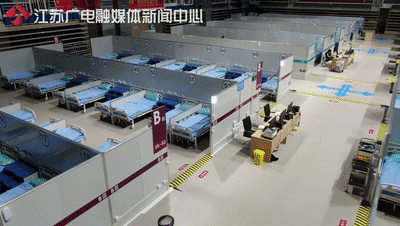East China’s Jiangsu province has intensified its efforts to implement dynamic zero-case policy so as to weave a tighter net for epidemic prevention and control. The province reported 4 confirmed locally-transmitted covid-19 cases and 71 asymptomatic cases on Tuesday.
At the checkpoint of the Qixiashan Yangtze River Bridge in Nanjing City, at twelve o'clock in the middle of the night, the epidemic prevention and control agents had just completed the handover of the night shift, and the freight drivers were still running around to ensure the smooth flow of logistics.
208 epidemic prevention and control agents work 24 hours in three shifts at this checkpoint.
Vehicles coming from areas where epidemic outbreaks have been reported can be released after going through a comprehensive check.

An enterprise service vanguard team at Jiangyan District of Taizhou city has checked the drivers’ health and whereabouts QR codes nucleic acid test certificates, and filled in freight vehicle passes at highway checkpoints 24 hours a day to ensure unimpeded passage of logistics.
Taicang Port Management Committee and Suzhou Municipal Transportation Bureau have developed a paperless data interconnection and mutual recognition system. Truck drivers can obtain the QR code for the passage in Taicang Port and Suzhou at the same time after being approved for the application.
The basketball hall and badminton hall in the Sports Park of Lishui District, Nanjing City were transformed into a cabin hospital with 320 beds to shelter and treat covid-19 positive patients.

Changzhou and Suqian have built cabin hospitals with 1500 beds and 1000 beds to be ready for operation any time.





